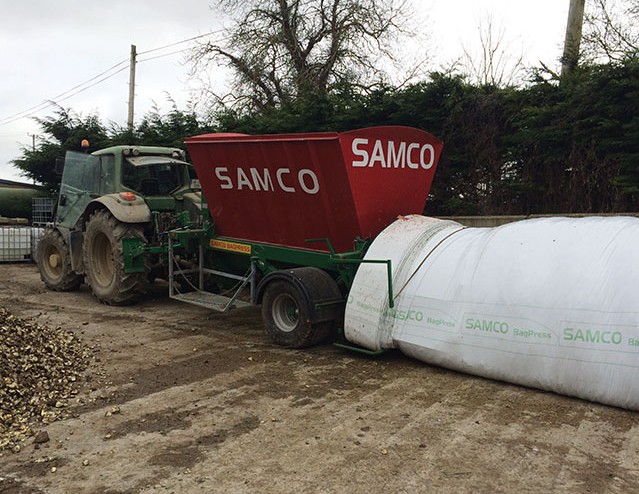
The farming industry involves many different aspects to ensure that a farm is run to the highest standard possible.
Farmers are always looking at ways to get the best out of their herd and to this end, feed is of the utmost importance. We all know that silage and hay are two of the main parts of livestock’s diet, but so too are cereals.
Wheat, barley and grain are harvested at different stages of the year and there are specialised services provided to ensure that these cereals are beneficial to the livestock.
Grain crimping and dry rolling are two services provided by specialist businesses and for this month’s edition of Irish Tractor & Agri, we profile Louth based Richard Lynch.
Since 2007, Richard has been successfully running the business as his customer base has grown year on year and from his base in Ardee, they now cover farms in Louth, Dublin, Meath, Down, Cavan, Armagh and Monaghan.
Richard Lynch specialises in crimping, dry rolling and grain processing. His team also roll big grains, maize, beans, lupins and peas.
Cattle cannot digest grain whole, so it has to be put through one of a number of processes, all of which are provided by Richard and his team.
Grain crimping or moist grain crimping is an agricultural technology, an organic way to preserve feed grain into livestock fodder by fermentation.
Crimped grain brings health benefits to the animals and economic benefits such as cost savings and increased meat or milk production to the farmer.
This system allows a wide harvest window in which to treat grain although combining can be more difficult and straw will be greener at the higher moisture.
With this treatment the grain is crimped, then the additive is applied. The grain is then put into a pit and rolled with a tractor, loader or quad bike then sealed with a cover. It can be stored in a shed or outside in a silage pit over the winter period.
Dry rolling sees grain passed through rollers which are grooved on the surface. Particle size varies from very small to very coarse and can be tailored to individual needs.
Protein Treatment 16% – 27% involves crimping the grain, adding the protein additive via an auger on the side of the machine, heaping the grain in a shed and not compacting it as the gas has to rise up through the grain to work properly. Heap is covered with plastic for not more than 3 weeks, then the cover is removed and grain is ready to feed out. There is no advantage in leaving the cover on for longer than this as the grain will sweat underneath and by this time the additive should have done its job of increasing the protein and preserving the grain.
Feed is the most costly single item in finishing cattle so improvements in feed efficiency can translate into increases in net profits. No single method suits all farmers so Richard Lynch offers a variety of grain treatments to cater for all needs.
“We are in business for the past eight years,” said Richard. Our customer base has grown every year. We operate two grain rollers and we are a mobile operation, so we go to every farm where the grain is processed.
“We can also treat and process our own grain. This sees using alkaline products to help preserve the grain for up to 12 months. There are three alkaline products and they are Maximum, Home & Dry and Buffer Grain. There are also four acids that we use and they are MI700, Crimpstone 2000, Micro-crub. This time of year is generally very busy for us. Usually, I try to do a few farms in the same area at the one time.”
Richard admitted that it was essential to keep the machinery well maintained in order to avoid any unnecessary breakdowns.
“We do our own maintenance and keep the machinery in good order. We are busy throughout the year and keeping the machinery working is of the utmost importance. We can’t afford to be breaking down, especially during the busy periods.”
Richard revealed that the business was very much a family affair as his father Patsy is involved as is Richard’s wife Wendy who looks after the administration side of the business, while Fergie O’Neill has been with the company a few years now.
From July to the following March is the busiest period and then from May and June is the quiet period for them. During the busy period, Richard and his staff can get through 25-35 tonnes of grain per hour and this generally sees them get through each farm pretty quickly.
During the winter period, Richard brings his mobile unit to farms on a fortnightly basis in order to roll the grain and keep it in the best condition possible.
Richard Lynch
Stickillen,
Ardee,
Co Louth
Mob: 0-08-2869583
Taken from Irish Tractor & Agri magazine Vol 3 No 6, July 2015